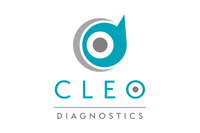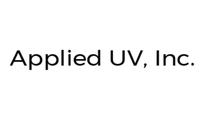Biotricity CEO: Why a Clear Path to Revenue is the Key to Entering New Markets
Biotricity CEO Waqaas Al-Siddiq explains why it’s important for companies to have a clear path to revenue when entering new markets like wearable medical technology.
In an age where technology has enabled individuals to — among other things — count calories, track exercise and monitor blood glucose levels, it should not be surprising that companies are using wearable technology to address medical needs.
One such company is Biotricity (OTCBB:BTCY), a remote patient monitoring company that’s entered the wearable medical technology market from a cardiac angle. To help investors understand the company’s wearable technology, as well as what they should look for when assessing companies entering new markets, the Investing News Network spoke with Biotricity’s CEO and Founder, Waqaas Al-Siddiq.
How is Biotricity different from other wearable device companies?
Al-Siddiq began by explaining the importance of billing codes. Essentially, he said, they’re important because without them physicians cannot bill for products. And if they can’t bill for a product, they are less likely to pay for it. Meanwhile, patients, unless they are very affluent, aren’t going to be able to pay for the product either. That means while a company might have a useful product, without a billing code doctors and patients will be less likely to buy it.
“A lot of medical device companies assume that they have US Food and Drug Administration (FDA) approval, [and that] they can bill for it and that’s actually not the case at all,” Al-Siddiq said, adding, “having FDA approval doesn’t mean insurance will bill for it. So what happens is if you don’t have a billing code, you actually have no path to revenue.”
Biotricity was keen to avoid that problem. As Al-Siddiq explained, “what we did is we looked at innovating within an established business. There was an established business and billing code within the market. It’s a monopolized market, and we addressed it by innovating and creating a complete solution and making it more accessible. Our model is putting a device into the physician’s office, [and enabling] him to use it on every cardiac patient.”
Billing codes are also important in that they make it much, much easier to gain capital. In fact, billing codes are what healthcare analysts look for when assessing companies to follow.
The changing landscape for wearable medical technology
As mentioned, Biotricity is working in the field of wearable medical technology. But what exactly is it doing?
Explaining, Al-Siddiq noted that he founded Biotricity based on the belief that the “next generation of wearables … [will be] medically relevant solutions that will enable compliance and will help physicians and patients.” Specifically, he was interested in addressing the need to monitor cardiovascular disease in remote patients.
“How do you manage your condition,” Al-Siddiq asked, “when your visits with your doctor become infrequent?”
That question is particularly relevant with the aging Baby Boomer generation, and Al-Siddiq emphasized that patient compliance is a specific issue that Biotricity is looking at. Patient compliance is a difficult but necessary task — “we have to come from the medical route and make sure accuracy is a component in there so that we can enable compliance and self management and the proper feedback,” he said.
One of the products that Biotricity has planned for the consumer market is BioLife, a consumer-oriented cardiac monitoring device designed for diagnostics. Al-Siddiq expects to launch the product later this year.
BioLife and its sister product BioFlux, slated for future release, are monitoring products that doctors will be able to prescribe to patients. They’re able to record ECG, as well as detect any other anomalies, meaning they can record if a patient is having an atrial fibrillation, or an arrhythmia. The information recorded is sent to a call center that reviews the data, and then calls the patient or doctor to deal with the issue. Afterwards, the doctor can remove the device.
Honing in on the importance of Biotricity’s products, Al-Siddiq concluded by saying that cardiovascular disease ranks as one of the leading causes of death in the world, and that compliance with treatment can only be driven with trust.
“You would need to take medical technology and apply a wearable-type environment that provides clinical feedback that the person can trust. Providing that type of feedback is what drives compliance. And so that’s our approach to kind of the healthcare market, as well as the consumer markets. We’re really kind of mashing them together and looking at it from the lens of preventative care and disease management,” he said.
Securities Disclosure: I, Vivien Diniz, hold no direct investment interest in any of the companies mentioned in this article.
Editorial Disclosure: The Investing News Network does not guarantee the accuracy or thoroughness of the information reported in the interviews it conducts. The opinions expressed in these interviews do not reflect the opinions of the Investing News Network and do not constitute investment advice. All readers are encouraged to perform their own due diligence.



